Are you looking for link-building strategies?
If so, you are in luck.
This monster list offers over 100 different ways to get links for your website, based on beginner, intermediate, and advanced levels.
Enjoy!
Beginner Link Building Strategies
Write Testimonials
Did you know that high-authority websites are more likely to have a higher ranking on Google’s search results (Backlinko)?
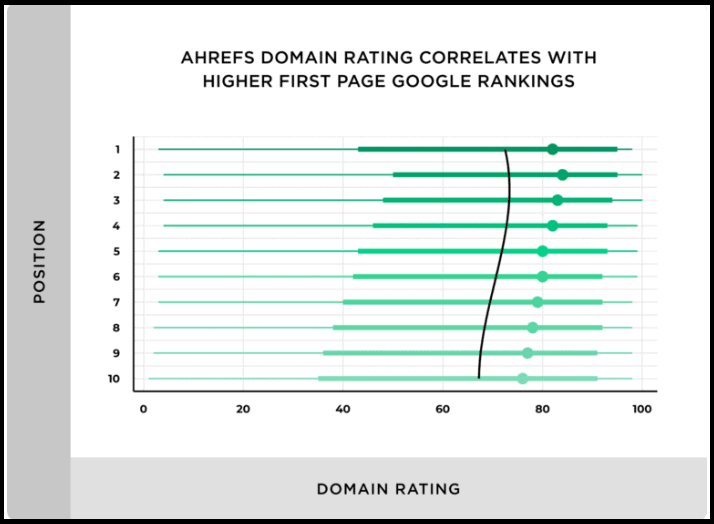
This SEO statistic suggests that you can take advantage of those authoritative websites to increase your online visibility.
Writing testimonials for other websites is one of the link-building strategies that is often overlooked.
If you have used a product or service and had a positive experience, why not write an honest review?
Most popular companies would be more than happy to post your testimonial on their website, along with a link back to your site.
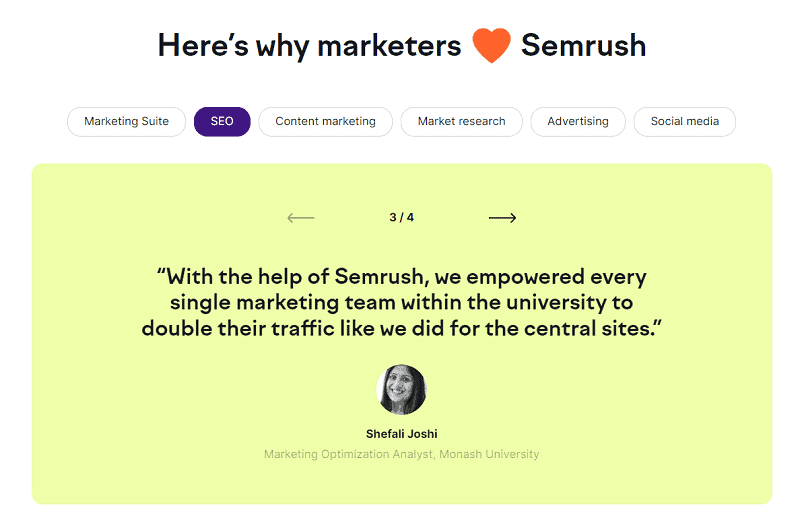
💡 For example, if you have written a review, you can reach out to the company and let them know how much you like their product or service. There’s a chance they will list you on their testimonials page.
Collaboration with Link-Builders in Your Niche
Usually, link-builders have a list of websites where they have completed a collaboration.
If you know someone in your niche who is building links, chances are they have a solid list of contacts and, if they will share it with you, you can use it to replicate the strategy.
So, think about link-builders in your niche and contact them asking to collaborate. You can offer them your list of good contacts if they share theirs with you.
👉 Participate in dedicated groups, for example, on Slack (use this link to join a popular one called “Off-page SEO“).
Get Interviewed
If you are an expert in your field, there are probably people who would like to interview you.
You can reach out to them and offer to be interviewed.
Most of the time you will get a link to your website together with additional exposure to their audience.
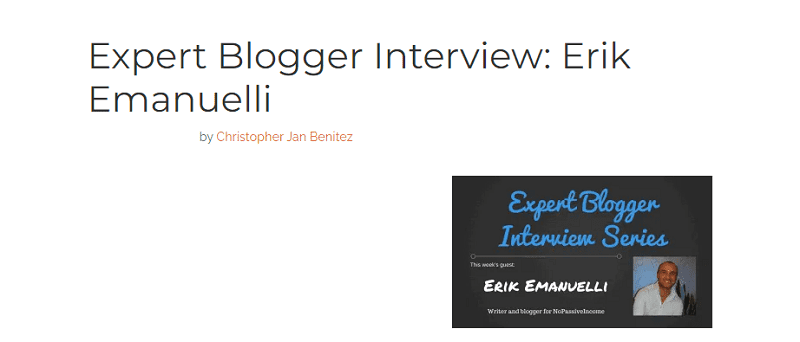
✅ Becoming an authority in your niche will help you naturally get more interviews.
Sponsor Events
Sponsoring events is something that most do not associate with link building.
But you need to know that, if you sponsor an event, you will usually get a link to your website on the event website. This can be a great way to get links and exposure for your brand.
To find events that you can sponsor, search for keywords like:
“sponsor” and “event”
Make sure to only select events that are relevant to your niche or industry.
💡 Try Evenbrite.com
Coupon Sites
When you submit your coupon, make sure to include a link back to your website so people can learn more about what you have to offer.
Here’s an example of a company profile on Groupon, with a link back to their website:
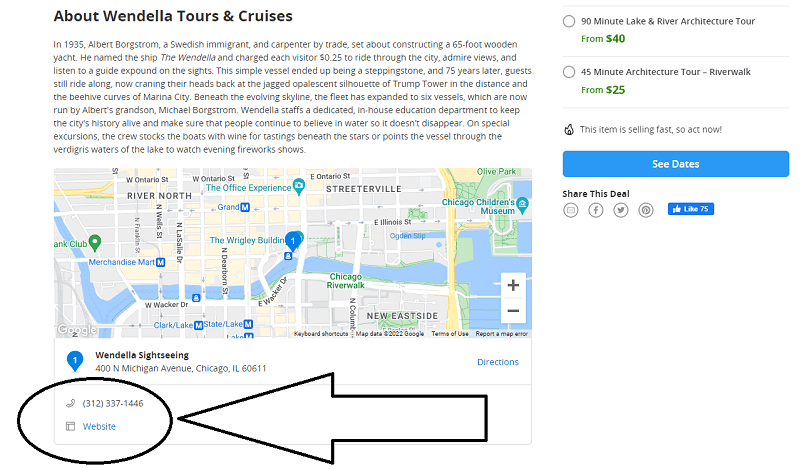
👉 Here’s how to sell on Groupon.
Slideshare
If you have a PowerPoint presentation or another type of presentation that is relevant to your business, you can submit it to Slideshare to get more exposure.
Also, when you submit your presentation, you can include a (nofollow) link back to your website in the description.
This is a great way to get linkable content out there and increase your brand’s reach.
✅ To help you submit your content to Slideshare, here’s the page.
Interview Experts in Your Industry
If you can get an interview with someone well-known and respected in your industry, this can be a great way to get links and exposure for your website.
When you conduct the interview, be sure to promote it through social media and other channels.
It will help you drive traffic to the interview page and increase the number of views.
💡 You can use sites that will expose your questions to experts and gather their answers. For example, Featured.com
Scoop.it
If you want to get your content distributed to a large audience, Scoop.it is a great platform to use.
It’s a content curation website where you can submit your content and other people’s content that is relevant to your niche.
When you submit an article or a page, you can include a link back to the source.
This is a great way to get more exposure for your website and build links at the same time.

👉 Join my curated SEO list on Scoop.it
Business Directories
They are not as popular as they used to be, and according to Moz research, web directories appear to be a small factor in helping rankings.
But still, there are some good business directories that you can use, especially for local businesses.
If you search “business directory”, you will find a list of paid and free directories to which you can submit your website.
✅ Some of the more popular directories are:
- BOTW.org
- Aboutus.com
- Spoke.com
- Bingplaces.com
- BBB.org
Profile Links
Some websites let you register and create a profile page.
Usually, you will get a nofollow link, but sometimes, a dofollow.
For profile page link building, be sure to only stick to relevant websites in your industry.
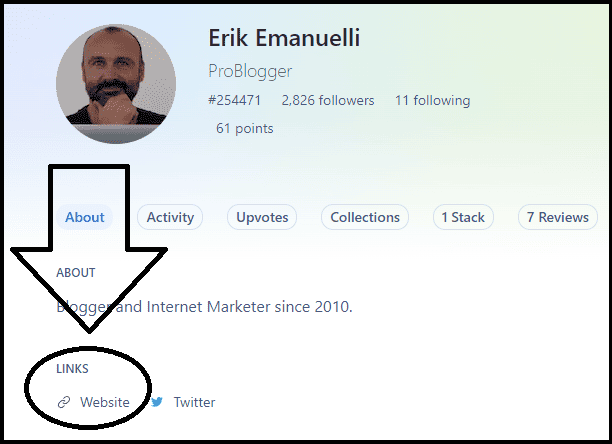
💡 My profile on ProductHunt has a backlink to my site.
Mention Influencers
Mentioning bloggers, website owners, or influencers is one of the most effective ways to build connections and relationships in your industry.
One way to do this is to talk about them in your blog posts or articles.
👉 When you mention another site with WordPress, they will usually get a notification called “Trackback“. And if they like what you have written, they may link to it.
Reciprocal Linking
This is where you link to another website and they link back to you.
To find potential websites to link to, you can search for keywords like:
“link partners” or “reciprocal links”
Remember to only link to content that is relevant to your niche or industry. Just be sure to not overdo it, or you will risk penalization.
Take a look at John Mueller’s statement recorded during the Google Search Central SEO office hours hangout on January 28th, 2022:
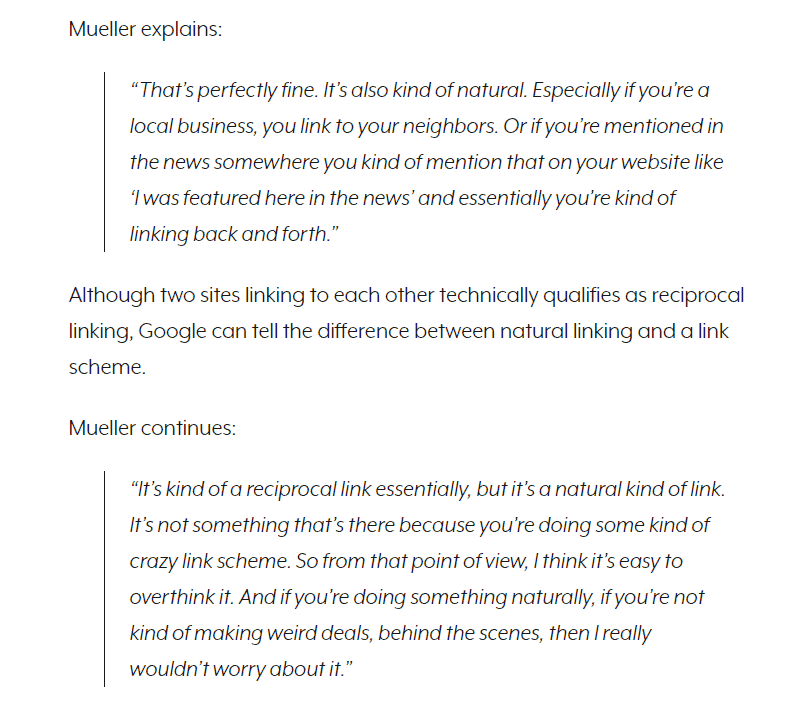
✅ When your site starts to grow, you will often get emails about link exchange. Just choose the most relevant and authoritative ones.
Job Postings
When you post a job listing, many job boards will allow you to include a link back to your website in the listing.
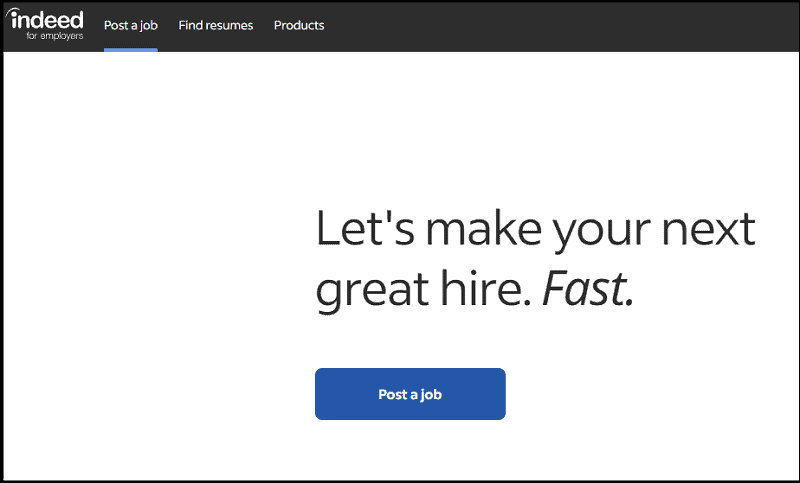
💡 Here are some popular job boards:
- Indeed
- Monster
- CareerBuilder
- Dice
- Glassdoor
- The Muse
Video Submission
When you submit your video, make sure to include a link back to your website in the description so viewers can learn more about what you have to offer.
Also, be sure to promote it through social media and other channels to drive traffic to the video page and increase the number of views.
This will not only help you get links or mentions, but it can also lead to increased sales and brand awareness.

👉 Other than YouTube, Vimeo is a popular platform you can try. And if your video is picked up by the staff as a featured one, jackpot!
Reclaim Links Pointing To 404 Pages
Most of the websites (especially big ones) have broken links (aka 404 error).
Once you find them, you can reach out to the owners and ask them to replace the broken link with a working resource (pitch your best work).
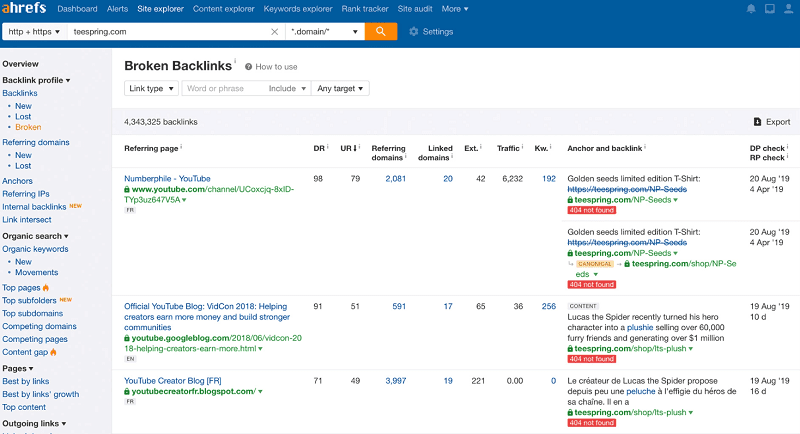
✅ You can use a tool like Ahrefs to find these broken links.
Google Business Profile
If you have a local business, you should create a Google Business profile.
Not only will this help you rank better for local queries, but it will also give you a link back to your website.
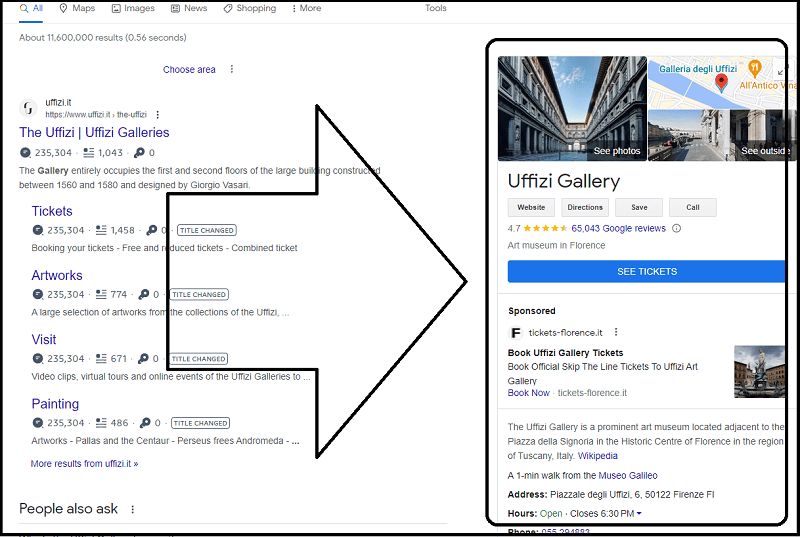
💡 To create your Google Business profile, simply go to google.com/business and follow the instructions.
Yelp Profile
Yelp is one of the most popular review websites and it’s especially popular in the US.
Creating a profile is free and easy to do (and it will help you with local SEO).
Like Google Business, you will get a link back to your website.

👉 To create your Yelp profile, simply visit this page and click on the “Verify my free listing” button.
Foursquare Profile
Foursquare is another popular review website, especially for local businesses.
Creating a profile on Foursquare is free and easy to do. And like Google Business and Yelp, you will get a link back to your website.
For example, see what the MoMa of New York listing looks like:
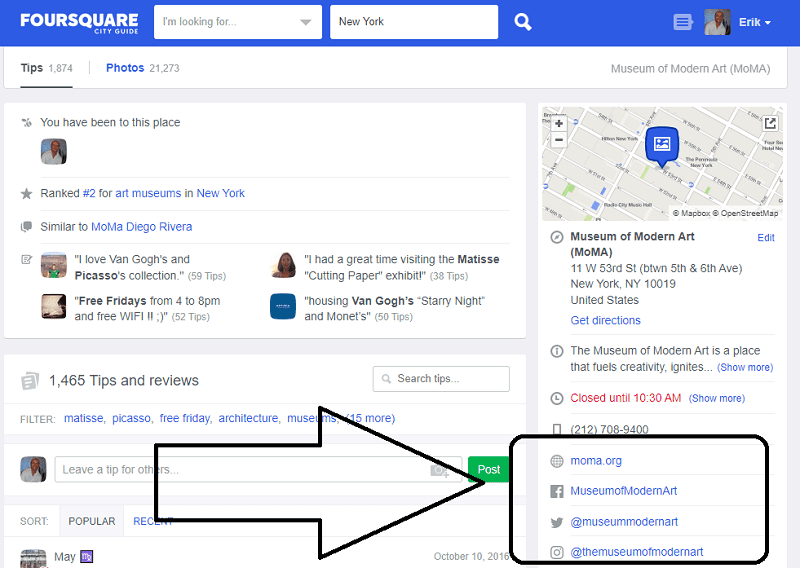
✅ To create your Foursquare profile, simply go here and click on the “Claim My Business” button.
Create an RSS feed
RSS (Really Simple Syndication) is a format that allows users to subscribe to content from websites.
If you are using WordPress as a CMS, you already have an RSS feed on your blog. If you don’t, you should create one.
Some sites are using RSS feeds to replicate and copy content on their sites. So, if you are including internal linking in your posts, you should get backlinks every time those sites copy your work.
Social Media Profiles
Most social media sites allow you to include a link to your website in your profile.
So, if you don’t already have, make sure to create an account for each of them.
Here are some popular social media sites:
- X (Twitter)
- TikTok
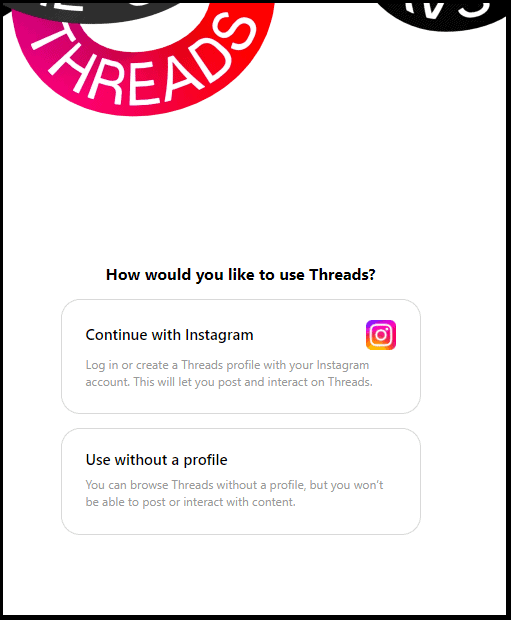
💡 Try Threads, it’s the new meta-response to X (Twitter).
Guest Blogging
Guest blogging is when you write an article for another website (usually, within your industry).
It’s a great way to improve your online visibility, but be sure to only contribute to relevant websites and avoid link farms.
Also, remember to add value to your guest posts, and don’t try to promote your content too much.
Now, let me tell you a secret.
It has been years already that guest posting is under the radar of Google:
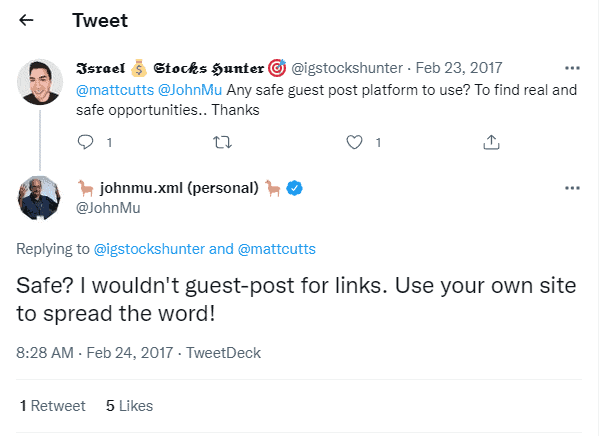
So, don’t use keyword-rich anchors, when you submit links within your content, and aim to create compelling and informative articles (including optimized title and meta description for better placement on SERP).
👉 If you don’t know how to pitch your guest post, you can use this template.
Link Baiting
Link baiting is when you create content that is so good, that people can’t help but link to it.
My on-page SEO guide has been linked many times and has received more than 3k social shares.
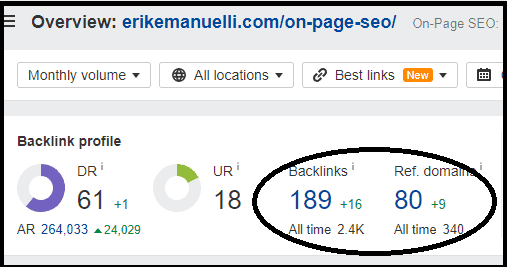
But be sure to avoid link bait tactics that are manipulative or spammy.
✅ Don’t create fake news stories or clickbait headlines just to get clicks.
Forums
Forums are places where people share their insights, experiences, and thoughts on favorite topics.
Usually, website links are allowed in the profile signature.
If you want to get links from forums, find popular forums in your niche and become an active member.
💡 Try this search operator: forum + “your keyword”
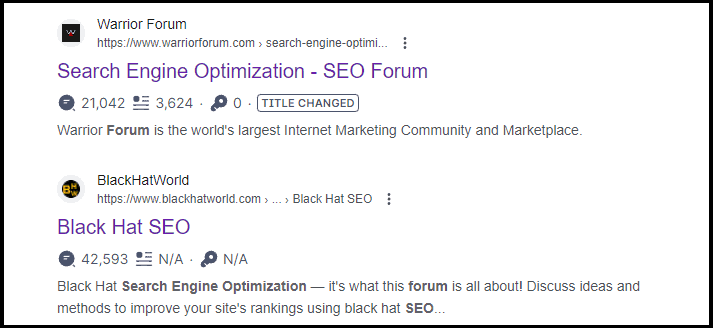
Create A Linkable Asset
A linkable asset is something on your website that other websites would want to link to.
This could be an infographic, a study, a tool, or anything else that is unique and useful.
To increase the chances of someone linking to your asset, be sure to promote it on social media and reach out to relevant websites in your industry.
👉 In my Google Knowledge Panel guide, I share my experience with earning one. And readers liked the step-by-step explanation of how to get one.
Social Bookmarking Sites
Social bookmarking sites are websites where you can share links to your favorite websites.
If you submit your website to social bookmarking sites, you can get traffic and links from those sites.
Here are some popular social bookmarking sites:
- Pearltrees
- Getpocket
- Diigo
✅ If you are in the tech niche, try Slashdot.org
Email Signature
Your email signature is a great place to include a link back to your website.
Every time you send an email, you have the opportunity to promote your website.
And if you have a lot of outgoing emails, that can add up to a lot of link opportunities.
To add a link to your email signature, you can use tools like Google Workspace (paid) or WiseStamp (free).
💡 This is what my email signature looks like:
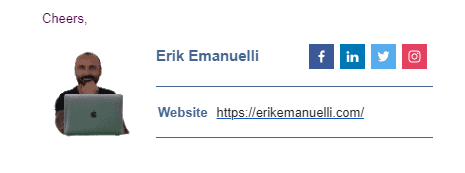
Alumni Lists and Directories
Many colleges and universities have alumni lists or directories that you can sign up for.
This is a great way to get a link back to your website from a high-quality website if you are a student (or if your site is in this niche).
To find these alumni lists, simply do a Google search for “college name + alumni directory”.
👉 For example, when I search for “Columbia University Alumni Directory” and click on the search result link, I see this:
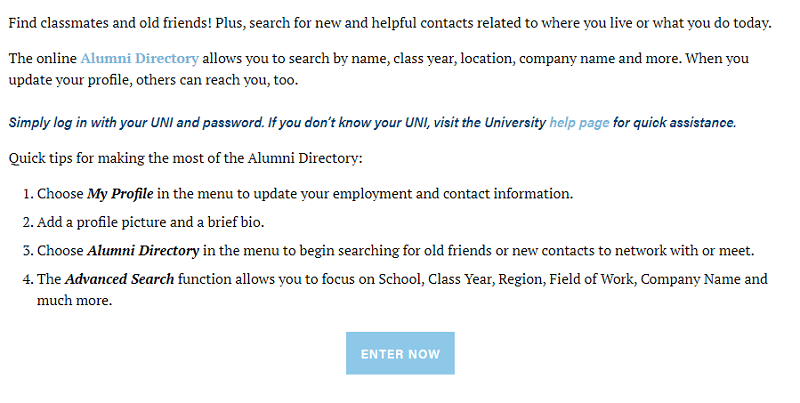
Ask People You Know for Links
If you know someone who has a website, ask them for a link.
This could be a friend, family member, or even a business associate.
Of course, don’t just ask anyone for a link. Do it with people who have websites that are relevant to your industry or niche.
✅ If you give away, then you would probably not need to ask back, because people will naturally exchange the favor.
Blog Commenting
Commenting on someone else’s blog is one of the most known (and often over-used) link-building strategies.
This used to be a popular way to get easy links. But right now, just do it for exposure to your content and to build relationships with other bloggers in your industry.
Remember to only comment on relevant blogs. Also, be sure to add value, and don’t try to promote your website too much.
Meaningful comments can get your name under the eyes of a larger audience if you choose authoritative sites in your niche.
💡 First actually read the article, then leave your thoughts. Here’s an example of a comment I left on the ElegantThemes blog:
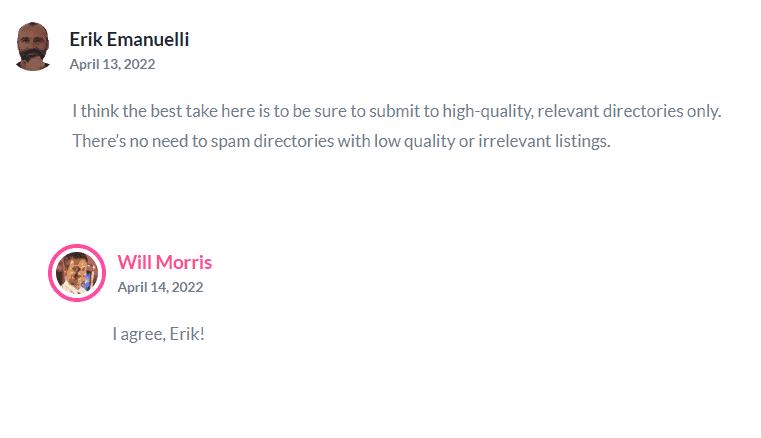
Blog Directories
Blog directories are websites that list blogs in different categories
This has been one of the most used link-building strategies in the past (remember DMOZ?).
So, be sure to only submit your URL to relevant directories and avoid link farms.
Here are some popular blog directories:
- Blogarama
- AllTop
- Bloglovin
👉 I’d not suggest wasting time in blog directories, they are mostly useless nowadays.
Crowdfunding Sites
Crowdfunding sites are where people can raise money for different projects.
If you have a project that you are trying to raise money for, you can get a link back to your website.
Here are some popular crowdfunding places on the internet:
- Kickstarter
- Indiegogo
- GoFundMe
- Patreon
✅ Here’s an example of a creator profile on Kickstarter with a link back to his website:
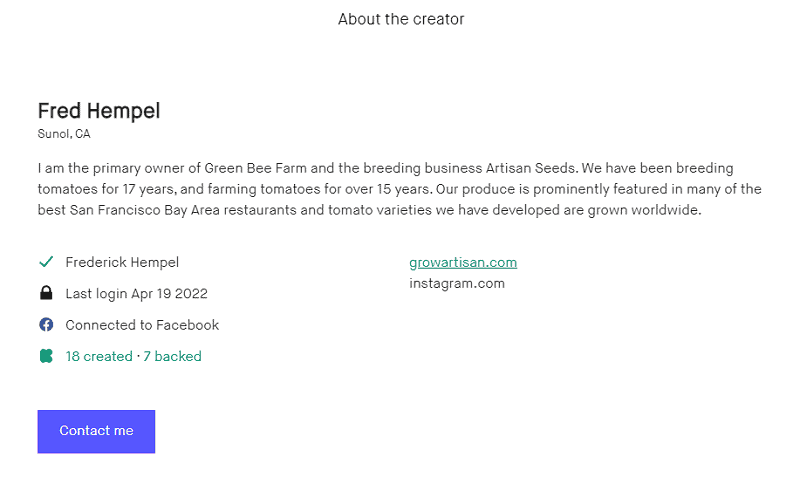
Charities & Non-Profit Organizations
Charities and non-profit organizations usually have a donors page where they list the people and businesses that have donated to them.
If you choose to send money to a charity or non-profit organization, you can ask to be listed on their donor’s page.
This is a non-conventional way to get a link from a high-quality website.
To find charities and non-profits that accept donations, simply do a Google search for “charities that accept donations”.
💡 Here’s a list of the best charities to donate to, in 2025.

Shopping Mall Websites
If you have a brick-and-mortar store, you can get your business listed on shopping mall websites.
These are websites that list all the businesses in a particular area or town.
👉 To find shopping mall websites, simply do a Google search for “city name + malls” or “city name + shopping”.
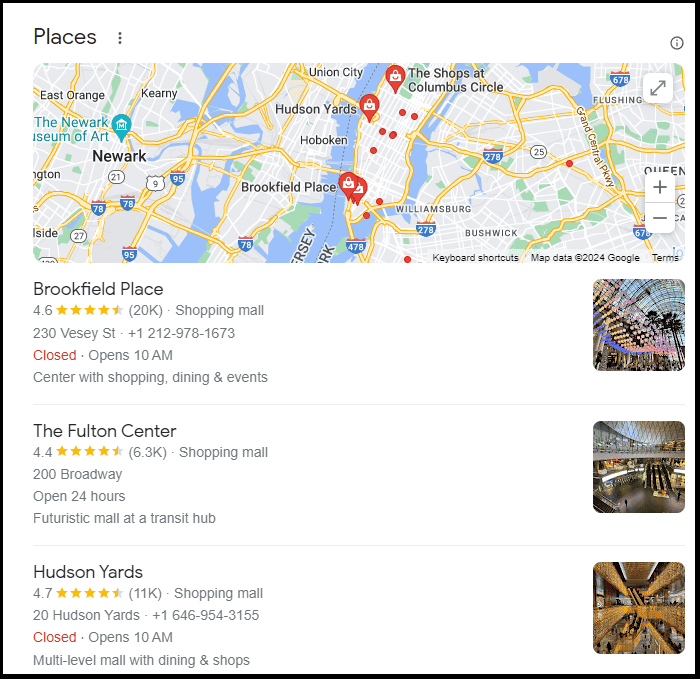
Resource Pages
Resource pages are pages on websites that list resources on a particular topic.
If you have remarkable content about some particular subject, you can look for related resource pages and contact the website owner, asking to be included in the list.
To find such kinds of pages, simply do a Google search for “keyword + resources”.
✅ For example, if you want to find resource pages about “link building”, you would do a Google search for “link building resources”.
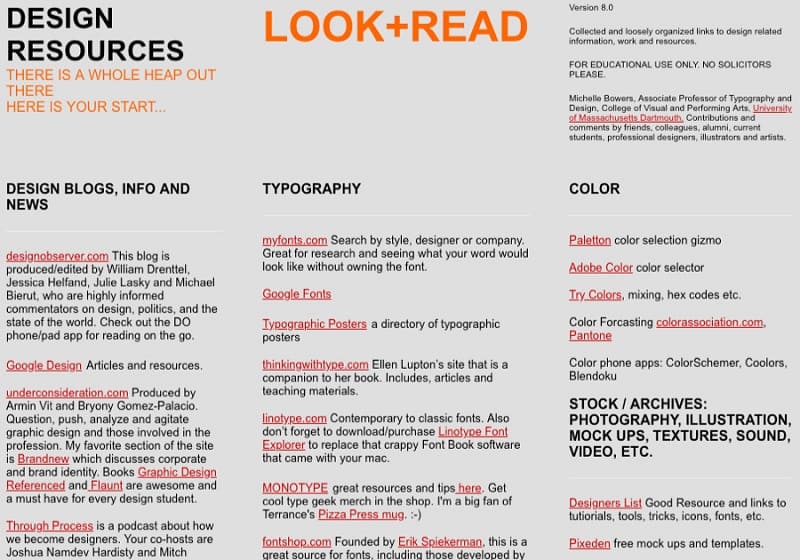
Intermediate Link Building Strategies
Infographics
Infographics are visual representations of data or information.
People love them because they are easy to consume and share.
To get links, you can create one for free using Adobe’s infographic maker and then reach out to relevant websites in your industry and ask them to post your visual with a link to it.
Or, you can also submit it to websites like:
- Visual.ly
- Slideshare
- Flickr
💡 For example, if you have educational infographics, you can submit them here (elearninginfographics.com).
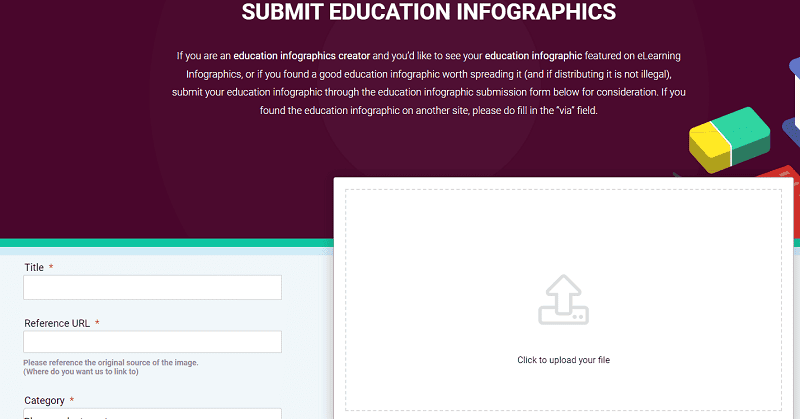
X (Twitter) Followers
If you have an X (ex-Twitter) account with a lot of followers, you can use that to get traffic and links to your website.
Since they are following you, they probably like your content, and will be easier to get under their radar.
You can contact them and pitch your guest post, ask them to get included as a resource in their content, or offer your insights in an interview.
👉 Keep DM open, so you can receive invitations for guest posts, interviews, and other kinds of collaboration.
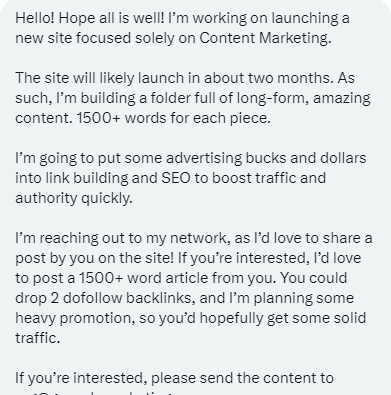
Webinars
If you host a webinar, you can use it to attract links.
Create one page dedicated to webinars, so people in your industry can link it from their website.
✅ Here‘s the Hubspot webinar page:
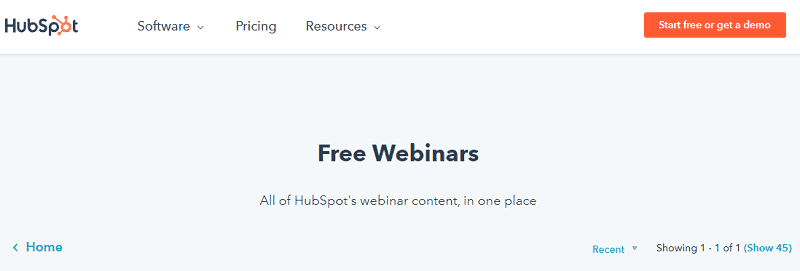
White Papers
A white paper is an authoritative report or guide that covers a specific topic and is meant to convince the reader to do something.
If you have a white paper, you can promote it to earn links.
To find websites that link to white papers, simply do a Google search for “keyword + white papers”.
💡 For example, if you want to find websites that published write papers about link building, you would do a Google search for “link building white papers”.
Tools
If you can create a useful tool, people will likely link to it.
There are many types of tools you can create:
- Calculators
- Charts
- Graphs
- Infographics
- Lists
- Quizzes
👉 For example, here’s a useful page for a calculator tool:

Petitions
If you can get enough people to sign a petition, you can use it to get links from other websites.
And if your petition takes off, media sites will probably mention it in a news article.
✅ The most popular website for this is Change.org
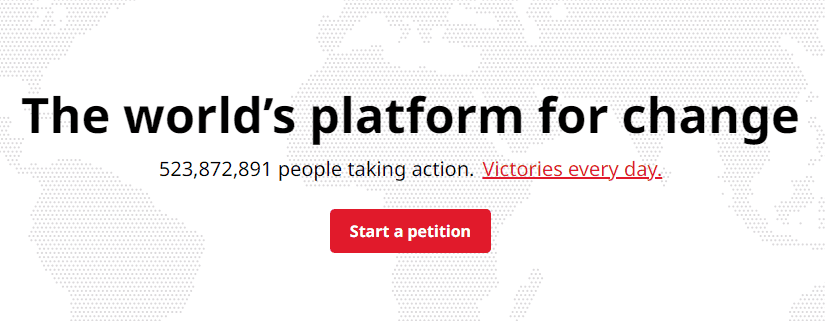
Link Roundups
A link roundup is a blog post that curates the best content from around the web on a particular topic.
If you can create a link roundup of the best content in your industry, you will have a chance to get links from other websites.
Or, you can ask to be included in link roundups.
To find opportunities, simply do a Google search for “keyword + link roundup”.
👉 My off-page SEO guide has been included in this SmallBizTrends roundup:
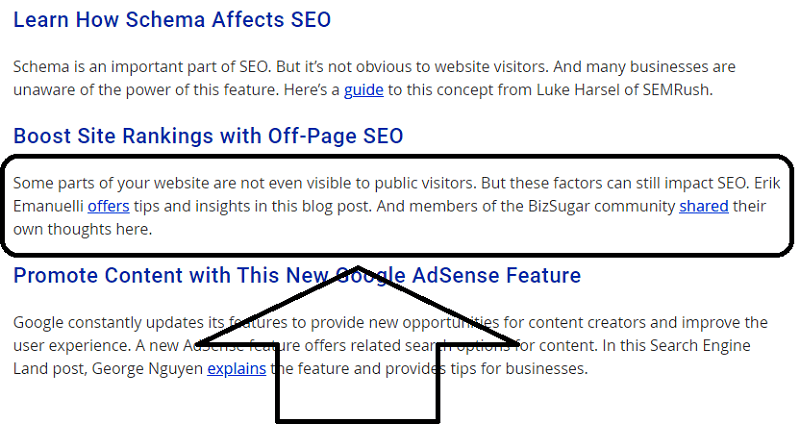
Research Competitors
You can use a tool like Semrush or Ahrefs to research your competitor’s backlinks.
Then, try to replicate them.
To find competitors’ backlinks using Google, simply search “keyword + inurl:links”. You can also try this command: “keyword + “your competitor’s name” + inurl:links”.
💡 I use Ahrefs. Using the “Site Explorer” feature, simply enter your competitor’s URL in the search bar. Then click on the “Referring domains” tab.
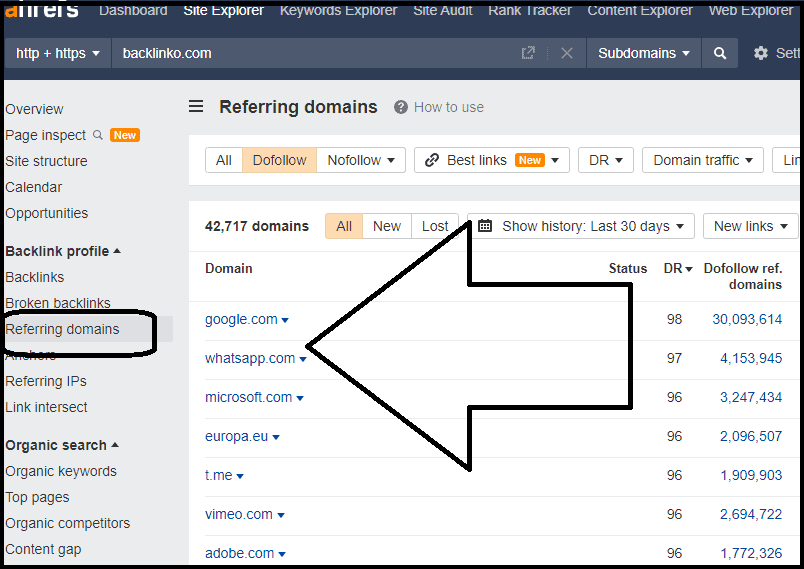
Quizzes
People love taking quizzes. You can use that to your advantage and get links from other websites.
To find quiz opportunities, simply do a Google search for “keyword + quiz” or “keyword + quizzes”.
✅ For example, if I want to find quizzes about SEO, I would do a Google search for “SEO quizzes”.
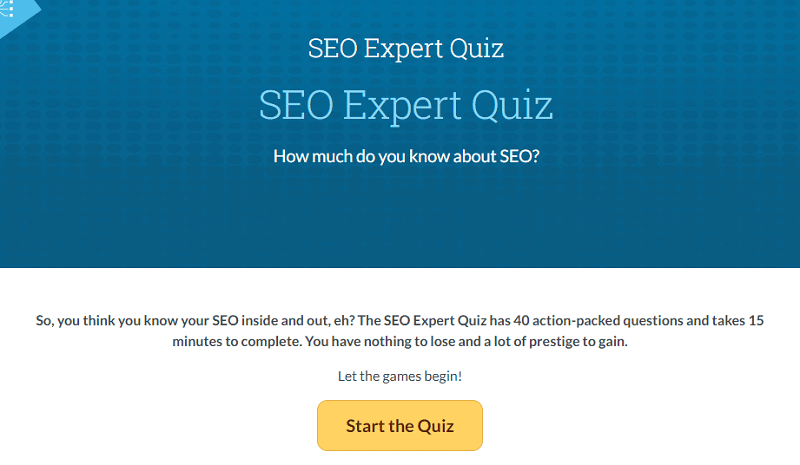
Product Comparisons
Product comparison articles are a good way to create content that is useful and that can be monetized with affiliate links.
And if your post ranks well, it can go under the radar of many bloggers and content creators.
👉 Here’s an example:

Humor
If you can be funny, you can get people to link to your content.
In other words, if you can make people laugh, they will want to share your content with their friends.
But it’s not as easy as it sounds.
💡 So if you’re not naturally funny, I would recommend not trying to force it.
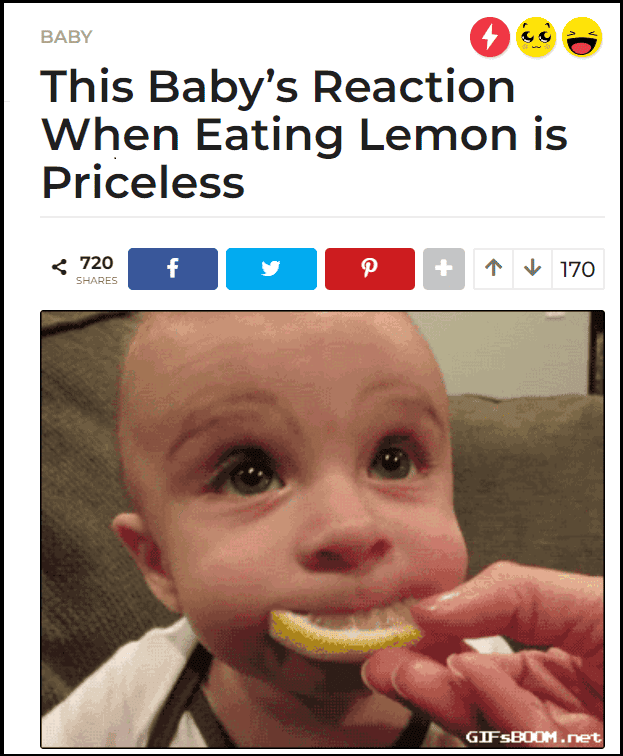
Press Releases
A press release is an official statement that is sent to media outlets.
You can use this kind of content to attract links and media exposure for your website.
✅ Although Google stated that their algorithm ignores most links within press releases, you can still consider it as a way to get more exposure, reach a new audience, and increase the chance they will link to your content.
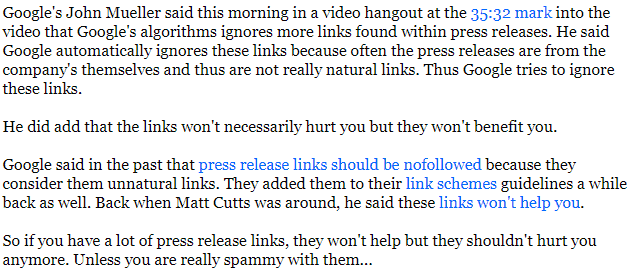
Reviews
If you have a product, service, or website, you can get reviews from other websites.
You can ask for them or you can pay bloggers for the review.
👉 If it’s sponsored, just remember, the link should be nofollow, as per Google guidelines.

Niche Communities
If you can get involved in an online community related to your niche, you can use it to attract links from other users, by sharing your knowledge and learning from each other.
There are many types of communities you can get involved in:
- Facebook Groups
- Reddit Subreddits
- Slack Communities
- Quora Spaces
💡 With over 300 million organic traffic, you should not miss the opportunity to leverage Reddit (find Subreddits here).
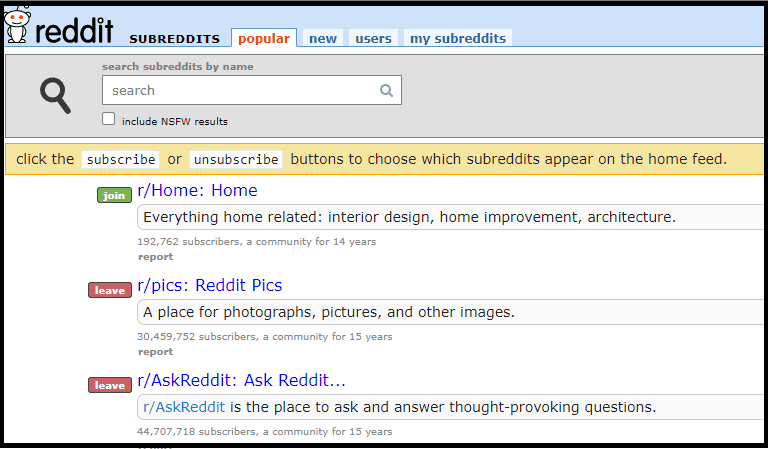
List of Statistics
Creating a list of statistics (like I did in this post) is one of the best investments in terms of link-building strategies.
It’s a piece of content that will keep on giving because other websites will want to link to it when they are writing about the same topic.
✅ To find relevant statistics, you can do a Google search for “keyword + statistics” or “keyword + research”.
Then, you can use email outreach to let people in your niche know about your new article and ask them to include it in their content.
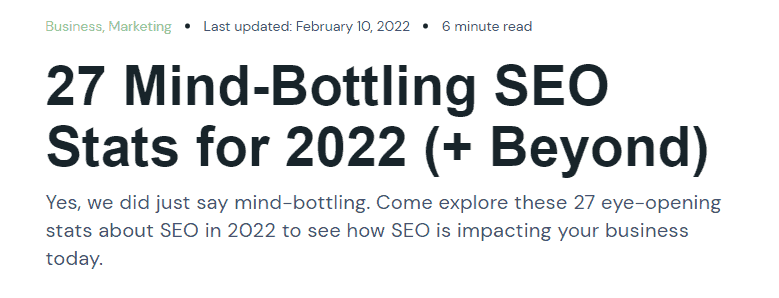
Live Blogging
Live blogging is a way of covering an event as it is happening in real time.
It’s a good way to get exposure for your website and brand. And if you do it well, you can get links from other websites that are covering the same event.
To find live blogging opportunities, you can do a Google search for “keyword + liveblog” or “keyword + live blog”.
👉 You can also use X (Twitter) to find these kinds of content.
Maps
You can create media like maps or even interactive visuals and share interesting facts or stats.
And if you do it well, you can get links from other websites that want to use your map or visual.
💡 Maphub.net lets you create interactive maps.
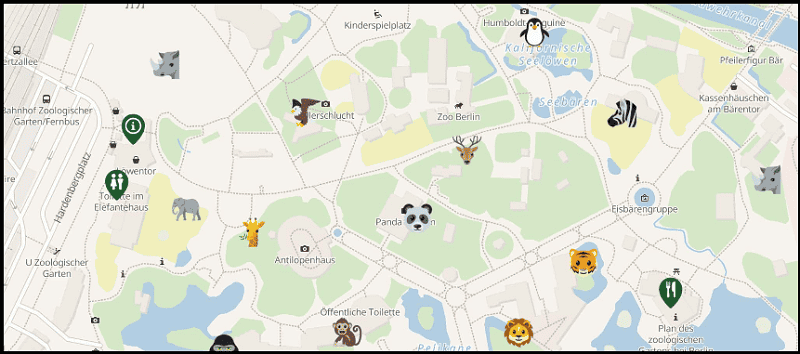
Useful Images
If you create useful images and place them in your articles, you can make your content easier to digest and you will increase your chances to receive backlinks.
As you probably know, SEO-friendly images will rank on Google and people can use them, placing a link to your website.
✅ Here’s an example of an informative visual I created (The Inverted Pyramid strategy).
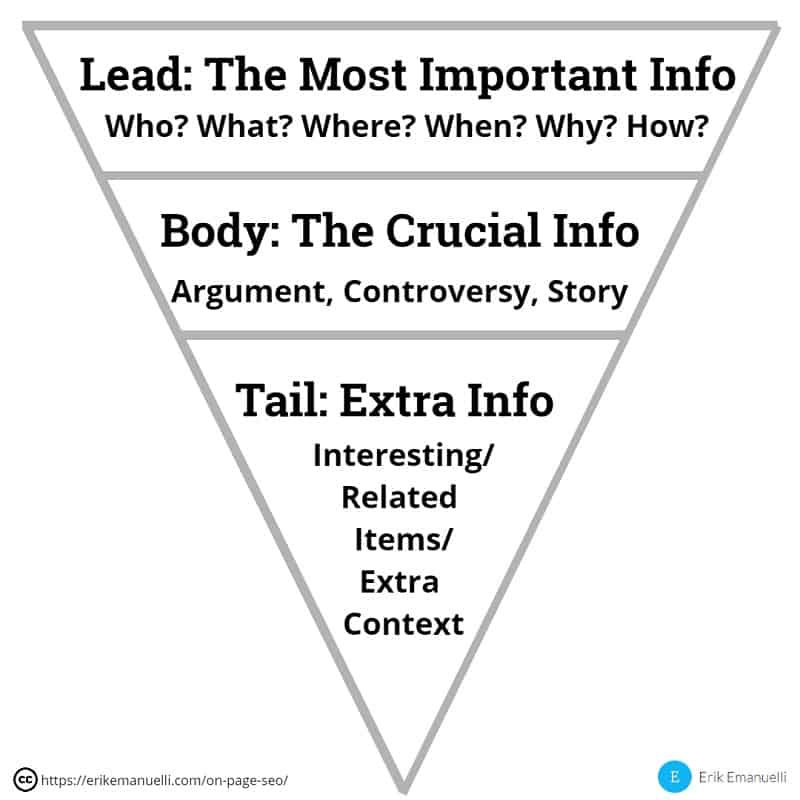
Newsletters
If you have a newsletter, you can use it to promote your best content with links to your website.
The link can be placed within the body of the message or in the signature.
👉 If you can get mentioned in someone’s else newsletter, it could lead to an increase in traffic and exposure to your content.
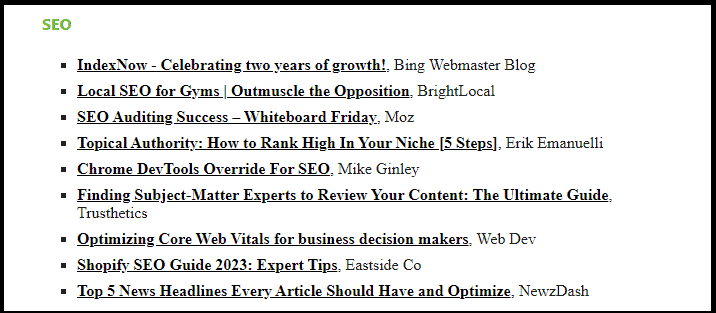
Instructographics
An instructographic is an image that shows how to do something.
They are similar to infographics, but they focus on showing the steps needed to complete a task.
You can ping people in your niche about your instructographic and ask them to include it in their content when relevant.
Or share it on infographic submission websites.

Local Newspaper Sites
You can get links from your local newspaper site by being active in the community and submitting stories or press releases when you have something newsworthy to share.
To find your local newspaper website, you can do a Google search for “city + newspaper” or “city + news”.
You can also use X (Twitter) for research.
💡 The New York Times is an authoritative newspaper site (DR93).

(HARO) Help A Reporter Out
HARO is a platform that connects reporters with sources for their articles.
You can sign up to be a source and when a reporter sends out a query related to your area of expertise, you will receive an email with the details.
If you can provide a quote or insights for the article, you might get mentioned in the article with a link to your website.
✅ Here’s an example of a successful pitch I sent out via HARO which landed into a nice backlink:
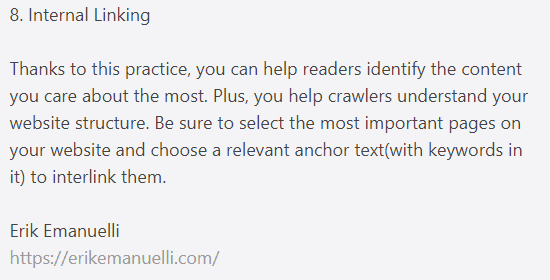
Internal Links
An internal link is from one of your articles to another post on your site.
They are important because they help search engines find your content and keep people on your website longer (which will help you improve your bounce rate).
When you’re writing new content, look for opportunities to link to other articles on your website that would be helpful for the reader.
👉 For example, if you’re writing a post about link building, you could link to another article on your website about SEO or related topics.
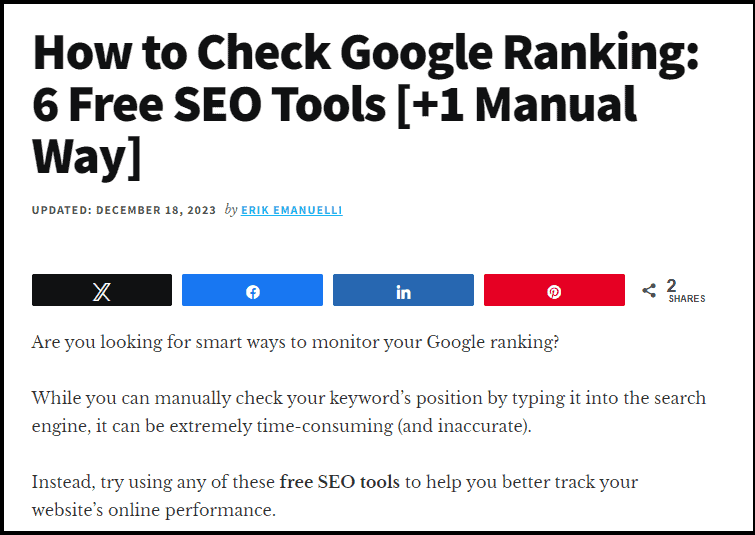
Icon Sets
If you create a high-quality icon set, people will want to use it on their website or in their apps.
And if they do use it, they will have to link to your website.
You can use social media or email outreach to promote your work.
💡 Try Pexels, so when users download them, they will likely give you proper credit.
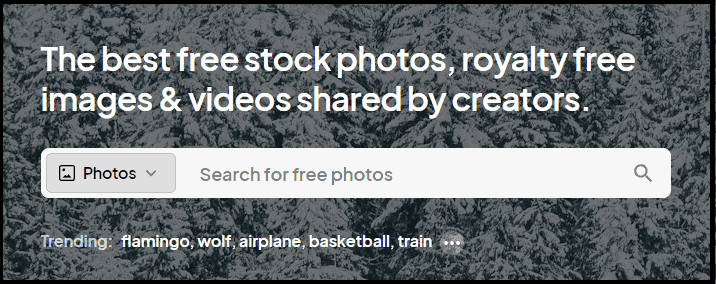
Tutorials and How-to Guides
If you can write a helpful and detailed tutorial or how-to guide, you will be able to attract mentions from other websites that want to link to your content as a resource.
✅ My keyword research guide has been linked many times and received more than 2000 social shares:
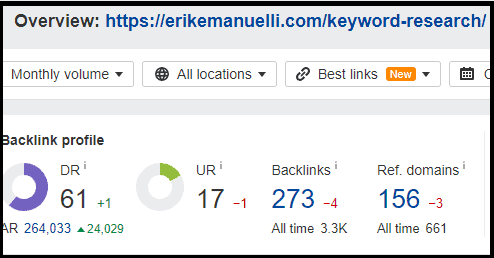
Host Events
If you host an event, you can get links from the websites of the sponsors and partners that help to make your event possible.
You can also earn mentions from local news if you do a good job promoting your event or from the websites of the people who attend your event.
Evergreen Content
Evergreen content means useful for a long time.
It’s the type of article that people will want to link to year after year.
To write evergreen content, make sure to choose timeless topics that will be relevant for years.
Also, remember to update your article regularly and keep it up-to-date.
👉 Wikipedia is the perfect example of evergreen content:
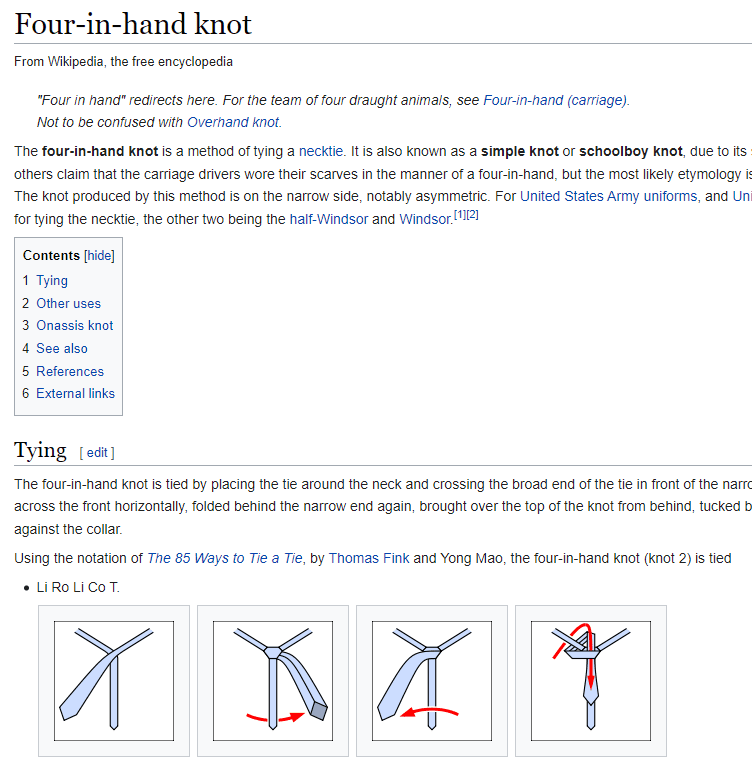
Get Interviewed on Podcasts
If you can get interviewed on popular podcasts, you may have the opportunity to get mentions from the show notes page.
The same goes for the listeners. If they like what you say, they might want to check your website and eventually link to your content.
To find podcasts that you can be interviewed on, you can use Google search or sites like iTunes.
✅ Cyrus Shepard, guest of “The Recipe for SEO Success” podcast, has his website and social media links mentioned on the show page.

Glossaries
If you can create a helpful glossary, people will want to link to it when they are writing articles about the topics you cover.
To make your glossary even more helpful, you can include backlinks to other articles on your website that explain the terms in more detail.
You can also use social media or email outreach to let people know about your glossary and ask them to include it in their content when relevant.
💡 This SEO Glossary published by SearchEngineJournal counts many links and shares:
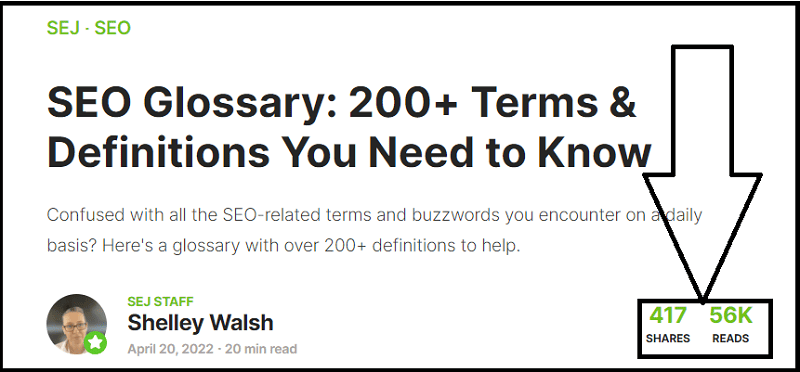
Find People Using Your Images
If you have created any kind of pictures, you can look for websites that are using your images without giving you credit.
Then you can reach out to the owner and ask them to give you credit with a link.
👉 You can use the reverse image tool search of Google or other sites like TinEye to find websites that are using your images.
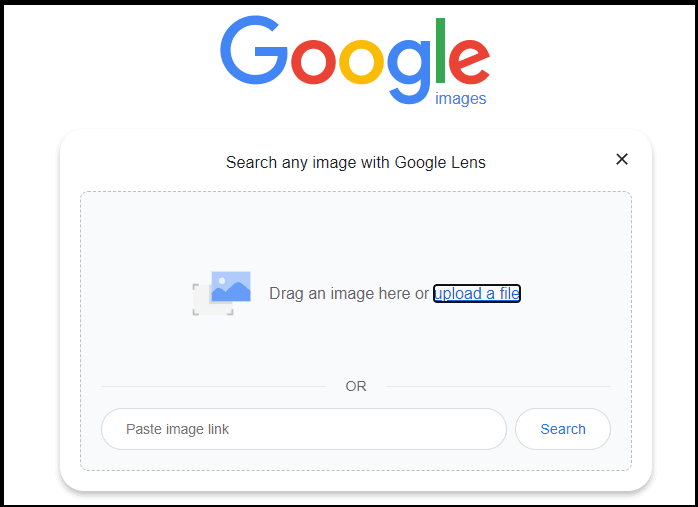
Web Design Galleries
Does your site look fabulous?
If you have a great design, you can submit it to web galleries.
Some of them will require you to link back to their website, but many of them don’t.
Submit your URL to as many web design galleries as possible to get links from high-authority websites.
Find Link Opportunities with the “Author Name” Search
If you do a Google search for any author’s name and look into the SERPs, you will be able to find websites where this writer has already contributed articles in the past.
You can then reach out to them and ask to guest post.
✅ Of course, choose names of known folks in your industry, so to find relevant websites:
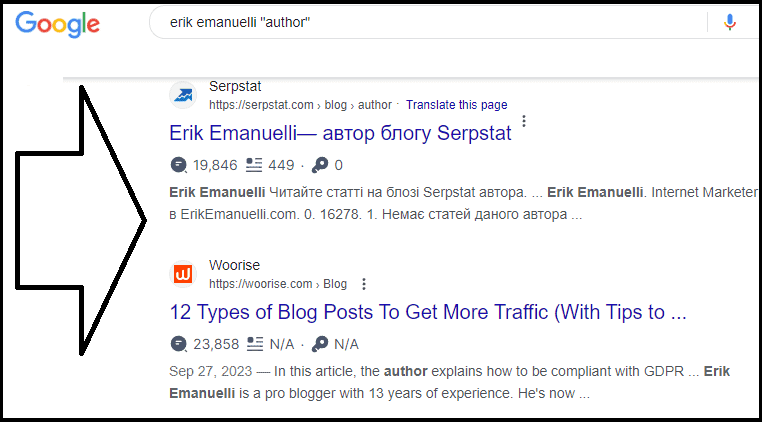
Event Recaps
If you attend an event, you can write an article about it and include links to all the websites of the speakers or sponsors.
You can also reach out to inform them that you have written an article about the event and that they are featured in it.
They will probably be happy to share your article with their audience.
Curate Useful Content
You can help people in your industry by curating useful content from around the web.
You can do this by creating a resource page or by writing a round-up post.
You may decide to include links to all the websites that you are featuring in your curated content.
Then, you can reach out to let them know that you have featured their content.
💡 Be sure to add your thoughts about what you have curated. It’s important to not just create a list of links, but explain why you think that could be useful to your readers.
Expiring Domains
If you buy an expired domain and make a 301 redirection to your site, you will be able to get links from all the websites that are already linking to this domain.
This is black hat SEO, and you should probably not get credit for any pre-existing links, as stated by GoogleGuy (alias used in the past by Matt Cuts, former head of webspam at Google):
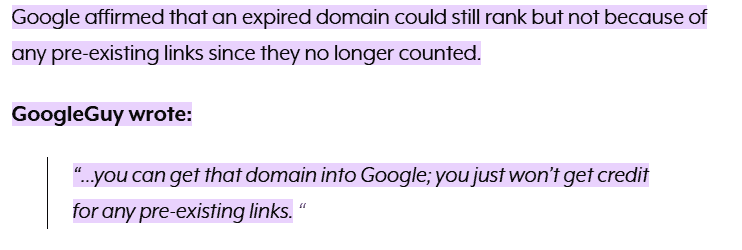
👉 Of course, this list would not be complete without the expiring domains link-building method, so it’s up to you to experiment with this strategy and see if it could work.
Ego Bait
If you can mention or quote famous people in your industry, they will likely share your content with their audience.
You can also reach out to these people and let them know that you have mentioned them in your article.
Dead Content Recreation
How does it work?
You need to find popular articles that are outdated or no longer relevant and you can update them with new information and data.
Then you can reach out to the websites that are linking to the old article and let them know about your updated version.
✅ You can use Google search or tools like Ahrefs to find these opportunities.
Emotional Content
A study in 2010 of the most-emailed New York Times articles found that emotional articles were shared more often.

If you can create content that evokes an emotional response, people will want to spread the word about it with their friends and followers.
And if your content is shared by enough people, you will start to get links from other websites.
💡 To make your content more emotional, you can use stories or try to evoke positive or negative emotions like happiness, anger, or sadness.
Curriculum Links
You can contact universities and offer your content to be included in the courses.
Of course, your content must be relevant to the topic and it should be of high quality.
👉 If you can get your content included in the curricula of universities, you will likely get links from high-authority websites.
Curated Rankings
You can create rankings of something in your industry and curate them with your commentary.
Think of people, websites, products, or services in your niche.
✅ TIME 100 Most Influential People is one of the most popular examples of this kind of content:

Create Conversational Content
You can get links by creating content that sparks a conversation.
You can do this by writing blog posts or creating videos that people want to share with their friends and followers.
To make your content more likely to be shared, you can include controversial topics or ideas. But make sure that you don’t offend anyone.
💡 Digg is an example of a popular website with trending news and stories around the internet.
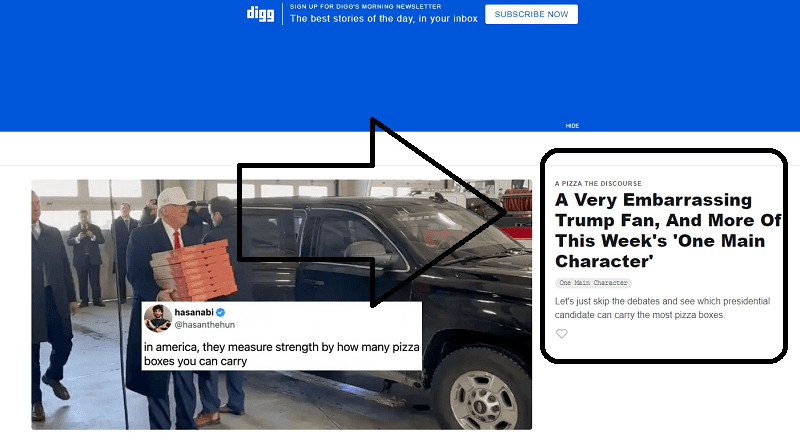
Contest Giveaways
You can get links by holding contests and giving away prizes.
To do this, you need to create a page on your website and promote it on social media.
When people enter the contest, they will usually promote it and if they win, they will probably link back to your website.
Expert Roundups
An expert roundup is a blog post that features the opinions of experts in a certain field.
For example, you can ask people in your industry to share their thoughts on a certain topic.
You can then include all these responses in your blog post and link back to the websites of the people who have contributed.
👉 If you are well-known in your niche, people usually reach out asking you to be included in their roundups:
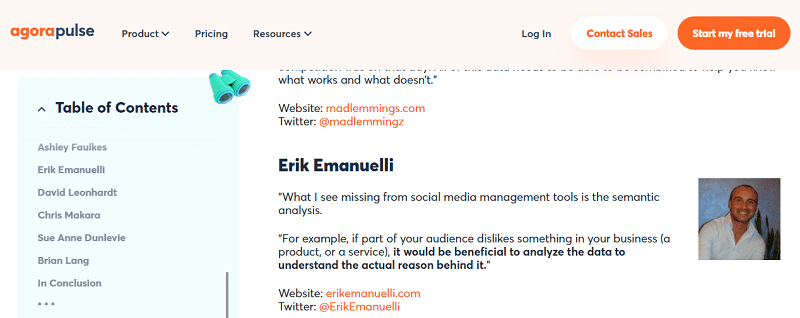
Create a Blog
Creating a blog sounds easy right? But making it popular is indeed not.
You need to create high-quality content that people want to read and share.
If you can do this, you may start to earn mentions from other websites.
To make your blog more successful, be sure to create optimized content and promote it on social media.
List Posts
List posts (listicles) are extremely popular and they are a great way to get links.
You can create list posts about anything. For example, you can write about the best products in your industry or the top places to visit in your city.
To make your listicle more successful, be sure to include high-quality images and infographics.
Contribute to Wikipedia
You can get links from Wikipedia by contributing to the site.
But, you need to be careful. If you try to add links to your website in the Wikipedia articles, you will probably be banned.
✅ In short, be sure to contribute useful information and data (you may be able to get a link back to your website in the references section).

Industry Research
If you can do industry research and create useful data like this one, you will probably get tons of links from other websites.
To do this, you need to gather data from your niche and then analyze it.
Once you have done this, you can write a blog post or create an infographic to share your findings.
Case Studies
If you have done something interesting or innovative in your business, you can write a case study about it.
For example, if you have increased sales by using a certain marketing tactic, you can write a case study about it.
People love reading real-life experiences because they are interesting and they provide valuable information.
To make your case study more successful, be sure to include data and testimonials from your customers.
Build Connections
You can get links by building connections with other websites in your industry.
If you have a good relationship with other websites, they will probably be willing to help you out.
👉 This is a natural mention I got on Lisa Sicard’s blog:

To build relationships with other people in your niche, you can attend industry events or conferences.
You can also connect with people on social media, through online forums, or by answering questions on sites like Quora.
Broken Link Building
Broken link building is a strategy where you look for broken links on other websites and then contact the website owner to let them know.
Then, he could decide to replace the broken link with one to your website.
To find these kinds of opportunities, you can use a tool like Ahrefs, or Screaming Frog.
Once you have found some broken links, you can contact the website owner and let them know.
Unlinked Brand Mentions
Unlinked brand mentions are when your brand is mentioned on another website but there is no link to your website.
You can find them by doing a Google search for your brand name or using a tool like Mention or BuzzSumo.
👉 If you find any unlinked mentions, you can contact the website owner and ask them to add a link to your website:
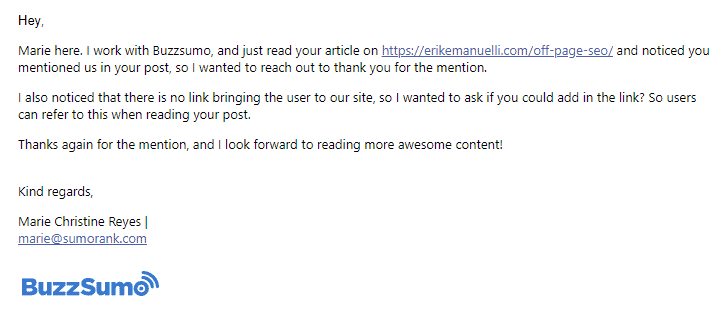
Badges
Badges are a great way to get links from other websites.
To do this, you need to create a reward for people, such as a prize in a contest or give it away for free.
Advanced Link Building Strategies
Update Old Content of Prominent Websites
If you can find old content on a prominent website that is no longer accurate, you can contact the website owner and let them know you are willing to provide the updated version.
The website owner will then usually update the old content with new information and include a link to your website.
✅ This strategy requires a lot of work, but it pays off, especially on authoritative sites in your industry.
Follow the Trends
Check Google Trends for hot topics to write for and then create something cool people will want to share.
You can also check sites like BuzzSumo to see what is being talked about on social media.
To make your content more successful, be sure to include data and statistics.
Write About a Seasonal Topic
You can get a lot of traffic by writing about seasonal keywords.
For example, you can write about Halloween in October or Christmas in December.
To make your content more successful, be sure to include data and statistics.
💡 This “50 Fun Christmas Trivia Questions” post is an example of content created around a seasonal topic:
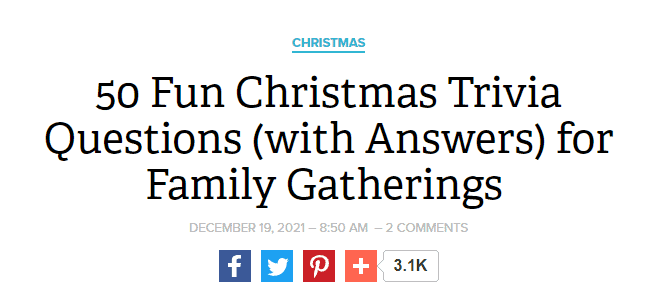
Surveys
You can create a survey and then promote it to get people to take it.
To make it more successful, you can offer a prize for taking it.
You can find questions people are asking with tools like Google Keyword Planner or BuzzSumo.
To create your survey, you can use a tool like Survey Monkey or Google Surveys.
Once you have collected the results, write about them and then spread the word.
You can also share the survey results on social media or through email marketing.
Speak at Conferences
If you speak at a conference, you can get a lot of exposure for your website.
To increase the chance of success, be sure to create a great presentation and promote it beforehand.
You can also provide the conference with a link to your website so people can find it easily.
💡 To find conferences, you can use a tool like Lanyrd or Eventbrite.

Reverse Engineering Strategy
Many of the most successful content creators on the internet have one thing in common: they reverse engineer success.
This means that instead of guessing what people want to read, they look at what is already working and do more of it.
👉 Use Ahrefs. Go to “Site Explorer”, enter your competitor’s URL, and analyze the best-performing pages.

Newsjacking
Newsjacking is a great way to get links and traffic.
To do this, you need to find breaking news stories that are relevant to your industry and then create content about it.
✅ Here you can find a good article that explains how to start newsjacking and get the most out of it.

PR Outreach
PR outreach is a great way to get high-quality links.
To do this, you need to find sites that are relevant to your industry and then contact the owner or editor.
You can do this by directly emailing them or using outreach tools.
💡 Be sure to include the compelling reason why you should get a link to your website.
WordPress Themes
If you create WordPress themes, you can get links by submitting your themes to directories.
To do this, you need to find places that are relevant to your industry and then submit your theme.
✅ The most popular one is WordPress.com Themes.
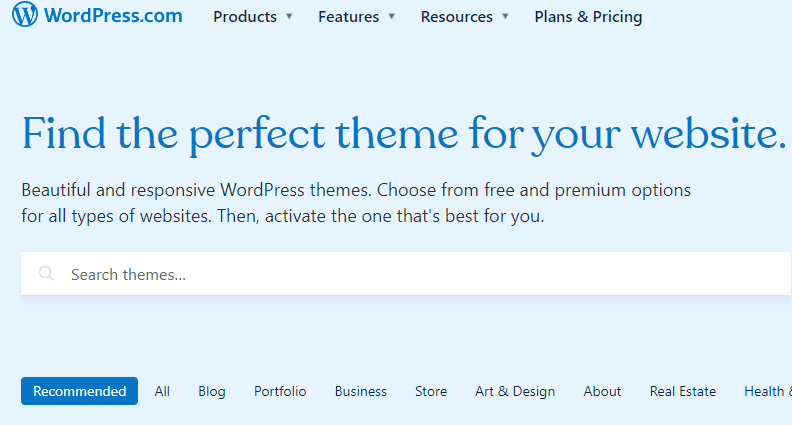
Create an App
If you create an app, you can get links by submitting your app to directories.
Or, look for articles that list the best apps in your industry and then ask to be included.
You can also get mentions by creating a blog post about your app and then promoting it.
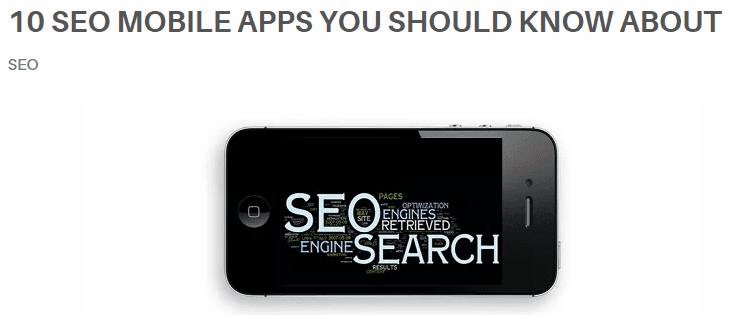
Plugins and Extensions
Same as for the themes, if you create plugins or extensions, you can get links and mentions if people start using them.
“Simply” create a plugin, and then promote it around the web.
💡 The best place to start is the WordPress.com plugins library.
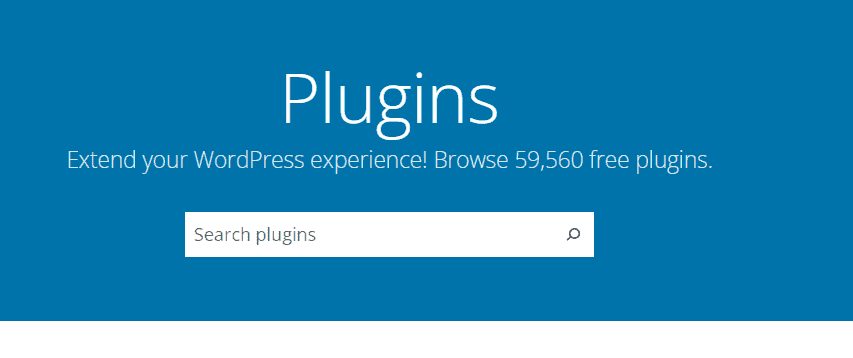
Interactive Content
Interactive content means that it needs active engagement with users.
To create interactive content, you can create something that people will want to use or share.
👉 Some examples of interactive content include quizzes, calculators, games, and even presentations.
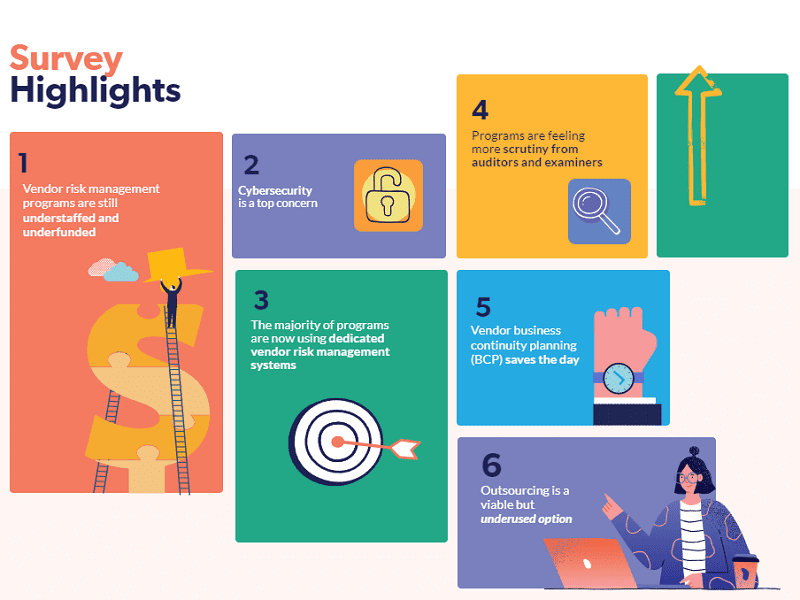
My Favorite Ways to Build Links
Have you ever done SEO without link building?
Yes, it is indeed possible, but only in certain cases.
The truth is…Today, links still matter.
In fact, they are one of the three most important Google ranking factors.
So, you might be wondering, what are my favorite ways to build links?
Guest Blogging
Guest blogging is among the strategies that helped me build connections, reach a new audience, improve my trust and authority (E-E-A-T), and create new backlinks.
So, how can you replicate my system?
Once you find relevant websites to contribute, start by reaching out to the appropriate person (usually, the blog editor), and pitching your offer.
You want to create a personalized message, addressing the site owner or blog editor (spend some time researching it), and then share some examples of your work. At the end of the email, you can complete your pitch by asking to contribute and sharing some topic ideas.
💡 Here’s a copy of the template I’ve been using:
Subject: Hey [Blogger Name], [Your Name] Here
Hey [Blogger Name],
how is life treating you?
I’m [Your Name] and my website is:
[Your Site URL]
Here are some of my recently published guest articles:
- [Mention the URLs of Your Best Guest Posts Here]
I’d like to submit a contribution to your site.
I have this title in mind:
[Pitch Your Idea]
A brief description:
[Make Your Guest Post Idea Appealing]
If it sounds good, I can send over a draft within the next few days.
I’d like to hear what you think! Please let me know.
Cheers,
[Your Name]
Collaboration with Link-Builders in Your Niche
I’ve been nurturing relationships with people in my niche since when I started blogging.
But it’s only lately that I’ve been building connections with link-builders.
If you don’t know how to start, simply ask to collaborate with some of the bloggers you know.
Since they are probably guest posting, you can offer to mention them in your upcoming articles, checking if they would do the same for you.
Also, there are tons of groups where you can find people willing to collaborate. LinkedIn, Facebook, and Slack are just some examples.
Usually, it’s a win-win situation. Everyone gets something out of it.
💡 Links are the internet currency!
Create a Linkable Asset
Linkable assets are pieces of content that offer great value to users and encourage them to mention them.
These are usually pieces of content like ebooks, whitepapers, infographics, research reports, or videos that take time and money to create.
But they can also be simple blog posts if done right.
So the idea is to create something worthy of a backlink. It needs to be valuable and relevant for the audience you’re trying to reach, as well as easy to share or link to.
This can be anything from an educational guide on a certain topic, an in-depth review about a product or service, or simply something funny that people may want to share with others.
Once you have a linkable asset ready, be sure to mention it on all your content and social media channels. You want people to know that such an awesome resource exists!
✅ For example, my features snippets guide caught the attention of a MOZ writer, and he decided to include it in one of his blogs:
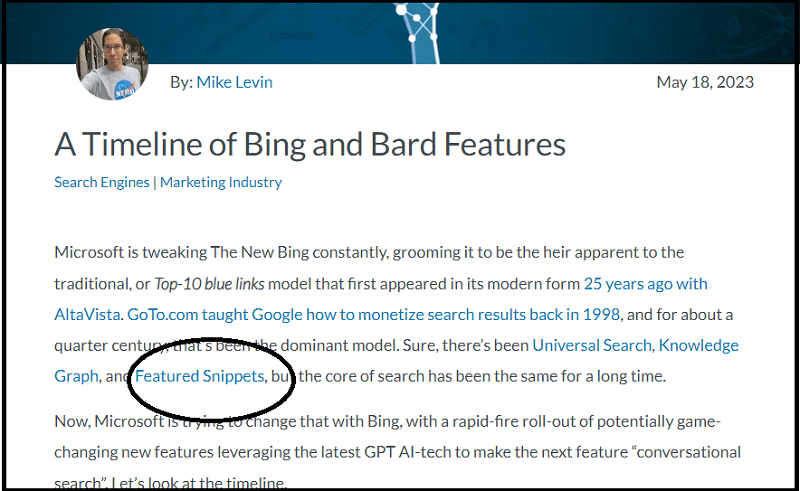
Before You Go
Thanks for reading so far!
At this point, you should have learned about the different strategies you can use to build links.
Link building is an important part of website SEO. But the whole process can be overwhelming.
So, why don’t you take the time to read the complete guide:
Now, it’s over to you.
What are your favorite link-building strategies?
Have you spotted something new?
Did you find some controversial points?
Let me know in the comments below!

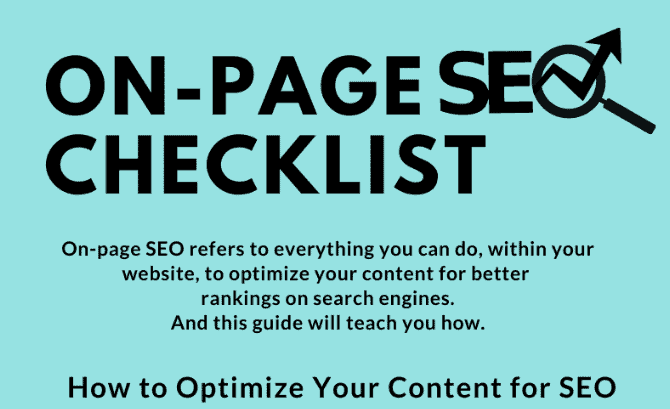
Hi Erik, I love this list! I hadn’t thought of Slideshare in years! I also like the idea of the coupon sites for my course. Hmm, you have a lot of great ideas in this one Erik.
I do use Google Trends and love it! A great way to know what is trending and what’s rising.
Thank you for the mention, I didn’t notice it right away, what a surprise. 🙂
What a ton of link-building strategies, right?
Thanks for your comment, Lisa.
Good to see you here again and I hope you can get some new ideas from this list.
Wow, this is perhaps the most definitive guide on link-building strategies I’ve seen on the internet!
Thank you, Sergey!
Your comment made my day. 🙂
This is an insane article Erik.
You explained every strategy very carefully.
Getting into interviews, guest blogging, profiles building etc are the great ways to build the links.
Thank you for this post.
Keep bring such awesome content on this blog.
Hi Venkat,
thanks for the positive feedback!
I hope these link-building strategies can help you earn some quality backlinks.
What a sensational list. Bloggers sometimes pigeonhole themselves with one or two link building techniques. Why limit yourself when you have literally hundreds of strategies for completing this task? Keep up the awesome blogging work my friend.
Hi Ryan,
I hope this monster list could help people get new ideas for quality links.
Thanks for the good comment, my friend.
HI Erik,
What a great list! The first one about testimonials was one of a few here that I haven’t thought of (and I haven’t seen it anywhere else). I will be referring back to this list for my own link building efforts. Thanks a lot.
Hi Barrie,
good to hear you had inspiration from this list for some good backlinks.
Thanks for your feedback.
This resource is almost too good to be public! Great job, Erik!
Thanks for the awesome feedback, Ann!
Great insights, Erik!
Building strong and relevant links is essential for boosting SEO and establishing authority.
Your strategies make the process seem much more manageable.
Thanks for sharing!
What’s your favorite way to build links, Charles?
Networking on interest groups and guest blogging is a great way to get really good backlinks that are related to your website’s topic. Agree with what you mentioned about picking actual relevant websites and avoid link farms. Very, very good advice. Thank you 🙂
Thanks for the positive comment.
Great article, Erik. I learned a lot from your link building strategies. One more strategy I would suggest is guest blogging with a twist, where you link back to a specific piece of content on your site that is relevant to the guest post topic. This can help you get more targeted traffic and backlinks. Thanks for sharing your insights.
Hi Anna,
good to hear you learned some new link-building strategies here.
And thanks for mentioning that tip. It is closely related to the concept of parasite SEO:
https://erikemanuelli.com/seo-without-link-building/#parasite
This is hands down the most useful and practical SEO link building article I’ve read, and I’ve read a lot…. Thank you.